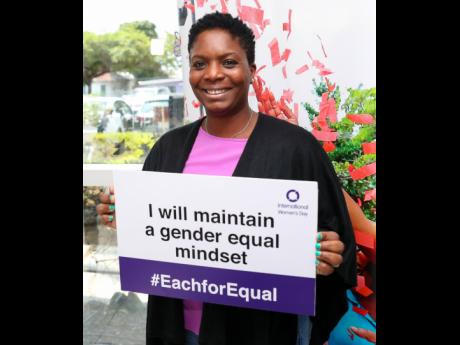Breaking gender stereotype is a must
The panellists at FLOW’s Passion for Action Summit, celebrating International Women’s Day, have agreed that the stereotypes of gender need to be broken for equality to be achieved in the different spheres of life in Jamaica.
The panel was comprised of communications consultant and lecturer Dennis Brooks, media personality and advocate Empress Golding, and FLOW’s first female senior director of technology operations, Susanna O’Sullivan.
Engaged around the International Women’s Day theme, ‘Each for Equal’, they addressed more than 100 attendees and over 500 team members who joined virtually, on gender issues affecting interpersonal relationships.
According to Brooks, many Jamaicans have difficult discerning the difference between ‘sex’, which he described as “biological hardware”, and ‘gender’ which he said is about masculinity and femininity. He said this, then, relates to the expectations and limitations placed on each other. He further shared that the stereotypes and expectations continue to be that girls are grown in the home, while boys are grown “wild and loose, and have no attachment to the home”.
WE ARe SERIOUS
Brooks also argued that women and girls are often perceived negatively when they are assertive or outspoken, while the same behaviour is readily accepted from boys and men. This, he emphasised, needs to change if we are serious about creating a gender-balanced society.
“The narrative about gender equality can be toxic. More stakeholders need to become a part of the conversation, to elevate the discussion so that meaningful results can be achieved,” he also highlighted.
Meanwhile, O’Sullivan argued that at the corporate level, fear about the negotiation process has women starting at a lower level on the salary scale than men, because men will typically negotiate for a higher salary than women.
However, she encouraged women to continue working hard to achieve success. She also shared that anything is possible, as the world is changing. Her appointment as the first female senior director of technology operations serves as a testament.
According to Golding, the root of gender equality also stems from history and slavery, with its gender stereotypes. She cited the example of boys being taught, mainly by women, how they should behave, and suggested that there are implications from these stereotypes. She also shared that to break gender stereotypes, a plan must be crafted that involves early-childhood education, while putting laws in place that will enable gender equality.



